Update Your Phones With Our #CountdownToMars Wallpapers, Like This One, Today: Https://www.nasa.gov/feature/perseverance-mars-rover-wallpaper-images/

Update your phones with our #CountdownToMars wallpapers, like this one, today: https://www.nasa.gov/feature/perseverance-mars-rover-wallpaper-images/
It's LANDING DAY for our Perseverance Mars Rover and her mission to search for ancient signs of life on the Red Planet!
Watch LIVE coverage today starting at 2:15pm ET (18:15 UTC):
Make sure to follow us on Tumblr for your regular dose of space: http://nasa.tumblr.com
More Posts from Sergioballester-blog and Others
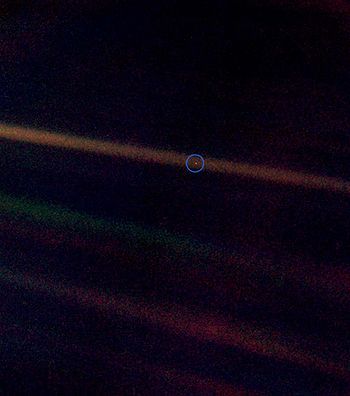
The Pale Blue Dot
The “Pale Blue Dot” is a photograph of planet Earth taken in 1990 by Voyager 1 from a record distance, showing it against the vastness of space.
By request of Carl Sagan, NASA commanded the Voyager 1 spacecraft, having completed its primary mission and now leaving the Solar System, to turn its camera around and to take a photograph of Earth across a great expanse of space. Reflecting on this picture (now considered one of the most important pictures in all of human history) Carl Sagan said:
“From this distant vantage point, the Earth might not seem of particular interest. But for us, it’s different. Consider again that dot. That’s here, that’s home, that’s us. On it everyone you love, everyone you know, everyone you ever heard of, every human being who ever was, lived out their lives. The aggregate of our joy and suffering, thousands of confident religions, ideologies, and economic doctrines, every hunter and forager, every hero and coward, every creator and destroyer of civilization, every king and peasant, every young couple in love, every mother and father, hopeful child, inventor and explorer, every teacher of morals, every corrupt politician, every “superstar,” every “supreme leader,” every saint and sinner in the history of our species lived there – on a mote of dust suspended in a sunbeam.
The Earth is a very small stage in a vast cosmic arena. Think of the rivers of blood spilled by all those generals and emperors so that, in glory and triumph, they could become the momentary masters of a fraction of a dot. Think of the endless cruelties visited by the inhabitants of one corner of this pixel on the scarcely distinguishable inhabitants of some other corner, how frequent their misunderstandings, how eager they are to kill one another, how fervent their hatreds.
Our posturings, our imagined self-importance, the delusion that we have some privileged position in the Universe, are challenged by this point of pale light. Our planet is a lonely speck in the enveloping cosmic dark. In our obscurity, in all this vastness, there is no hint that help will come from elsewhere to save us from ourselves.
The Earth is the only world known so far to harbor life. There is nowhere else, at least in the near future, to which our species could migrate. Visit, yes. Settle, not yet. Like it or not, for the moment the Earth is where we make our stand.
It has been said that astronomy is a humbling and character-building experience. There is perhaps no better demonstration of the folly of human conceits than this distant image of our tiny world. To me, it underscores our responsibility to deal more kindly with one another, and to preserve and cherish the pale blue dot, the only home we’ve ever known.”

Ocean on the moon Europa
Scientists' consensus is that a layer of liquid water exists beneath Europa's surface, and that heat from tidal flexing allows the subsurface ocean to remain liquid.

Europa's surface temperature averages about 110 K (−160 °C; −260 °F) at the equator and only 50 K (−220 °C; −370 °F) at the poles, keeping Europa's icy crust as hard as granite. The first hints of a subsurface ocean came from theoretical considerations of tidal heating (a consequence of Europa's slightly eccentric orbit and orbital resonance with the other Galilean moons). Galileo imaging team members argue for the existence of a subsurface ocean from analysis of Voyager and Galileo images.

The most dramatic example is "chaos terrain", a common feature on Europa's surface that some interpret as a region where the subsurface ocean has melted through the icy crust.
The thin-ice model suggests that Europa's ice shell may be only a few kilometers thick. However, most planetary scientists conclude that this model considers only those topmost layers of Europa's crust that behave elastically when affected by Jupiter's tides.

The Hubble Space Telescope acquired an image of Europa in 2012 that was interpreted to be a plume of water vapour erupting from near its south pole The image suggests the plume may be 200 km (120 mi) high, or more than 20 times the height of Mt. Everest.
Life?
So far, there is no evidence that life exists on Europa, but Europa has emerged as one of the most likely locations in the Solar System for potential habitability. Life could exist in its under-ice ocean, perhaps in an environment similar to Earth's deep-ocean hydrothermal vents. Even if Europa lacks volcanic hydrothermal activity, a 2016 NASA study found that Earth-like levels of hydrogen and oxygen could be produced through processes related to serpentinization and ice-derived oxidants, which do not directly involve volcanism.

In 2015, scientists announced that salt from a subsurface ocean may likely be coating some geological features on Europa, suggesting that the ocean is interacting with the seafloor. This may be important in determining if Europa could be habitable. The likely presence of liquid water in contact with Europa's rocky mantle has spurred calls to send a probe there.
Missions

Europa Clipper is an interplanetary mission in development by NASA comprising an orbiter. Set for a launch in October 2024, the spacecraft is being developed to study the Galilean moon Europa through a series of flybys while in orbit around Jupiter.

The Europa Lander is a proposed astrobiology mission concept by NASA to Europa, an icy moon of Jupiter. If funded and developed as a large strategic science mission, it would be launched in 2027 to complement the studies by the Europa Clipper orbiter mission and perform analyses on site. NASA's budget for fiscal year 2021 neither mandates nor allocates any funds to the mission leaving its future uncertain.
The objectives of the mission are to search for biosignatures at the subsurface ≈10 cm, to characterize the composition of non-ice near-subsurface material, and determine the proximity of liquid water and recently erupted material near the lander's location.
source

Saturn by europeanspaceagency














ALL 👏🏾 OF 👏🏾 THEM 👏🏾









Grand Jupiter

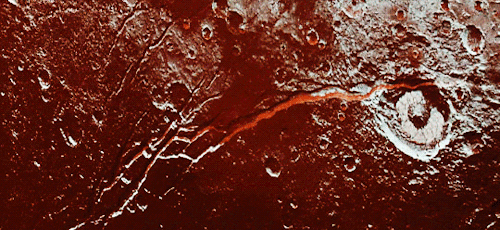
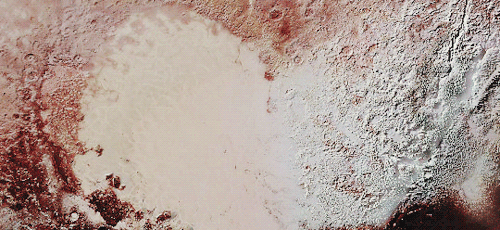
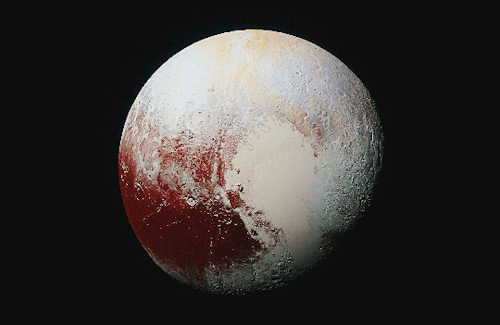
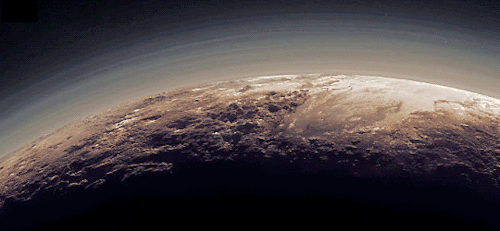
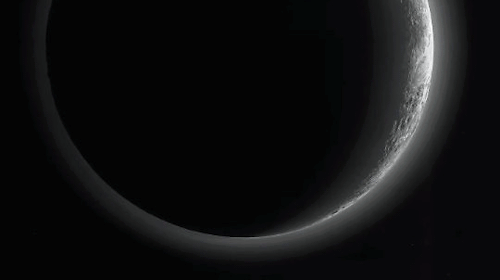
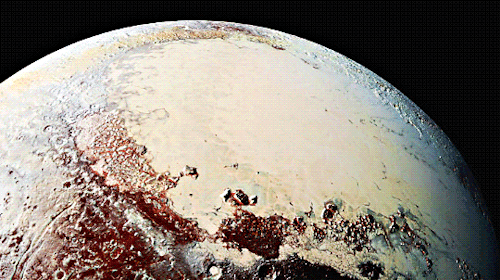
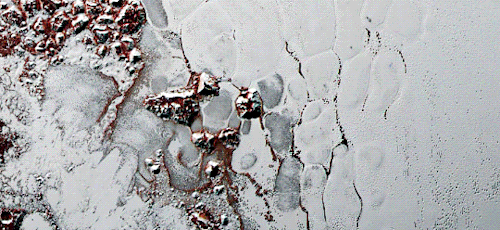

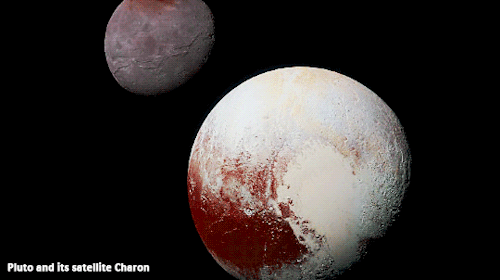
Pluto as seen from NASA’s New Horizons spacecraft ; Its heart-shaped sea is filled with poisonous ice.
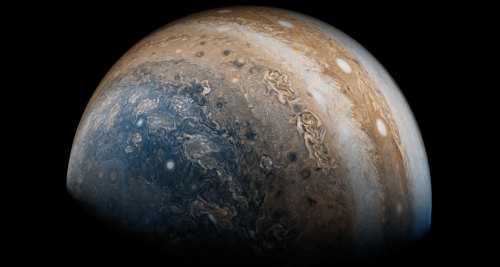









Jupiter Descending


Arthur Strengthens, Moves Northward by NASA Goddard Photo and Video
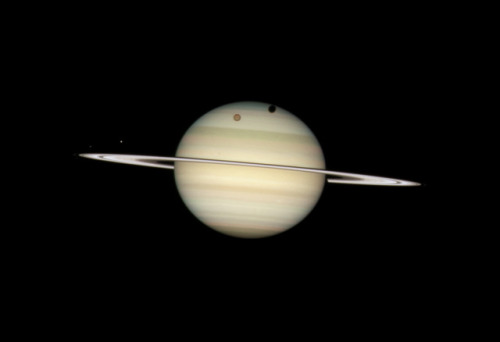
Saturn With Quadruple Moon Presence – Hubble Telescope
-
 virginalears reblogged this · 2 months ago
virginalears reblogged this · 2 months ago -
 annahpmn8 liked this · 7 months ago
annahpmn8 liked this · 7 months ago -
 thefeline-interloper liked this · 2 years ago
thefeline-interloper liked this · 2 years ago -
 ossumhxns liked this · 2 years ago
ossumhxns liked this · 2 years ago -
 notyams liked this · 2 years ago
notyams liked this · 2 years ago -
 braxis393 liked this · 2 years ago
braxis393 liked this · 2 years ago -
 petreoel liked this · 2 years ago
petreoel liked this · 2 years ago -
 iwillhaveamoonbase liked this · 2 years ago
iwillhaveamoonbase liked this · 2 years ago -
 coldlxvrx liked this · 3 years ago
coldlxvrx liked this · 3 years ago -
 kirantay liked this · 3 years ago
kirantay liked this · 3 years ago -
 hayalperestamarealist liked this · 3 years ago
hayalperestamarealist liked this · 3 years ago -
 w1nkueclipsesblog liked this · 3 years ago
w1nkueclipsesblog liked this · 3 years ago -
 jinglejangle101 liked this · 3 years ago
jinglejangle101 liked this · 3 years ago -
 juriprifti reblogged this · 3 years ago
juriprifti reblogged this · 3 years ago -
 amazinggad liked this · 3 years ago
amazinggad liked this · 3 years ago -
 brokebutbougielifting reblogged this · 3 years ago
brokebutbougielifting reblogged this · 3 years ago